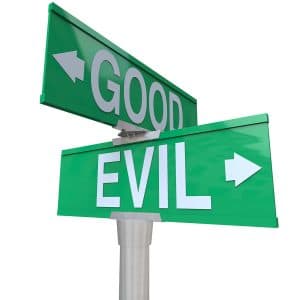Saving our souls
 Who knows why we do what we do? Why did I pick up that book at our town’s recycling center, start to read it, stop, and pick it up again all these years later? And, because it was there on page one of the prologue, this isn’t the first time that I read the passage that I have been turning over in my mind these last few months as if it were a newly discovered truth.
Who knows why we do what we do? Why did I pick up that book at our town’s recycling center, start to read it, stop, and pick it up again all these years later? And, because it was there on page one of the prologue, this isn’t the first time that I read the passage that I have been turning over in my mind these last few months as if it were a newly discovered truth.
The book is Roland Merullo’s novel, “In Revere, In Those Days,” and the passage is the narrator’s eloquent description of his knack of seeing the essence of people that lies hidden beneath their visible presence in the world.
The author is talking about the ability to see the soul in others or what he calls “the gem in plain wrapping.” It is the spark of life that is there from the beginning, shining forth clearly in young children and dancing in the eyes of people in love when they behold the objects of their affection.
The spark never goes away but we hide it under layers of habits, skills, wants, needs, and all kinds of behavior that obscure the people we are at our very core.
Sometimes, we hide the spark so well that it dims in us and we fail to see it in others. The light fades, the signal is muted by the noise, and the gem remains hidden in its wrapping.
Seeing the soul of the other and clearing the rubbish hiding our own is hard work but, considering the shape our world is in, it is not only worth the effort but also essential to our survival.
I am writing less than a week after another school shooting claimed the lives of 17 people in Parkland, Florida, four months after 58 were killed by a gunman who then took his own life in Las Vegas, and 52 years since Charles Whitman climbed to the top of the tower at the University of Texas and shot 17 innocent passersby on the ground below.
That was in 1966, three years after President Kennedy’s assassination and two years before Martin Luther King Jr. and Robert F. Kennedy were gunned down in the spring and summer of 1968.
In the summer of 1970 following my first year of graduate school, I had a clinical placement at a school in London for what they called “maladjusted boys.” I was not surprised when one of the boys, after telling me how much he admired America’s space program, asked if everyone in America owned a gun.
This rant is not against people who use guns responsibly for target shooting or hunting, but it is hard to rationalize a legitimate place for assault rifles or condone the NRA’s practice of buying elections for politicians who support legislation that fails to protect our children.
Moreover, it would be a mistake, in my view, to see irresponsible gun ownership as the only indication of our society’s moribund and rapidly failing soul.
Newspapers, television, and digital media bring us daily stories of sexual misconduct, political corruption, bullying, name calling, and a general degradation of political and civic discourse starting at the very highest level of government.
In his groundbreaking book published in 1950, “Childhood and Society,” Erik Erikson cited religion and government as two important social structures that support the developmental achievements of childhood.
Today, the moral failures of both are leaving millions of citizens, especially our children, without trustworthy models of integrity and reliable protection from elements in our society that would kill both body and soul.
There is an oft-quoted Cherokee tale about two wolves fighting in each of our hearts. One is evil and represents anger, envy, sorrow, regret, greed, arrogance, self-pity, guilt, resentment, inferiority, lies, false pride, superiority, and ego.
The other, the good wolf, is joy, peace, love, hope, serenity, humility, kindness, benevolence, empathy, generosity, truth, compassion, and faith.
When the Cherokee grandfather describes this fight to his grandson, the boy asks which wolf will win and the grandfather replies, “The one you feed.”
It is hard enough to keep the good wolf well-fed when our efforts are supported by social institutions that model our highest ideals and work to ensure that everyone is treated with dignity and respect.
When these institutions fail, the evil wolf has an advantage, the spark of soul dims, and the gem remains hidden. In these days, it seems like our world’s ever-present evil and suffering are multiplying faster than we can act to contain the damage. Yet, even now, we see evidence of soul in the work of individuals and organizations not content with things as they are.
In the aftermath of the school shooting in Parkland, Florida, it is the students, the young people whose souls shine brightly, who are making their voices heard with messages of protest and reform.
On a professional level, Dr. Martin Seligman and others are promoting positive psychology to study the strengths that enable individuals and communities to thrive.
On a personal level, we have the opportunity to contribute what each of us knows best to keep the good wolf well-nourished for our own sake and that of the world we share.
Shakespeare reminds us that “There is a tide in the affairs of men. / Which, taken at the flood, leads on to fortune; /…On such a full tide are we now afloat, / And we must take the current when it serves, / Or lose our ventures.”
Or, much worse, our souls.
